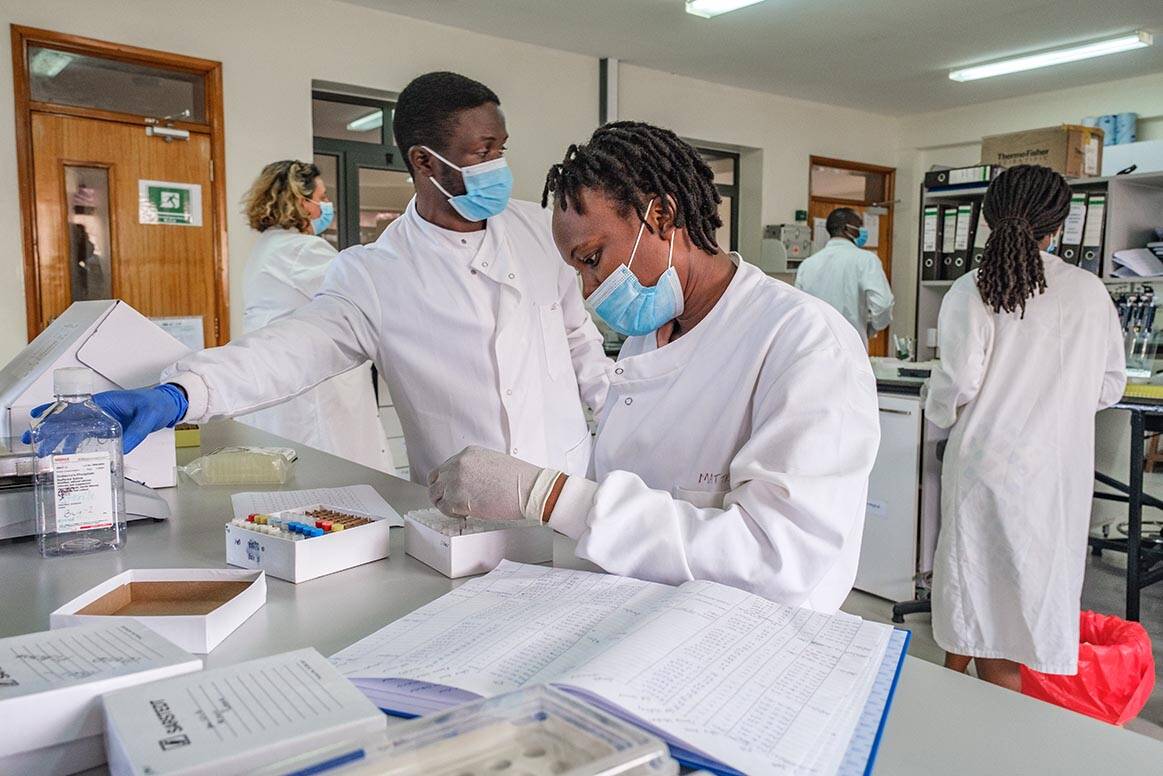In addition, he has pioneered use of a new approach, geospatial modelling, to generate high-resolution maps of immunization timeliness in different areas, again using The Gambia as an example. This approach integrates coverage data from nationwide Demographic and Health Surveys (data on more than 5000 infants) with geospatial information about the country’s administrative areas.
Focusing on vaccinations given at different ages – hepatitis B birth dose, third dose of pentavalent vaccine and first dose of measles-containing vaccine – Dr Wariri identified significant variation in timeliness for the three vaccinations across the country. For example, the analysis revealed districts in central and eastern regions where delayed vaccination was particularly frequent, while coastal districts were less likely to see delayed vaccination. The analysis also spotlighted areas where the greatest number of children affected were found.
During his fellowship, Dr Wariri has also carried out notable work examining the trajectory of COVID-19 vaccine introduction in countries across sub-Saharan Africa and the impacts of the pandemic on routine immunisation in The Gambia. Notably, the latter analysis found that, apart from some brief periods when coverage of hepatitis B birth dose and first dose of pentavalent vaccine declined, coverage has been remarkably consistent, suggesting that The Gambian immunization programme has shown good resilience during the challenging pandemic years.
The geospatial modelling work was presented at a seminar in August 2023. The findings are of great value to immunization programme managers looking not only to sustain high coverage, but also to improve the timeliness of immunization in the country. Furthermore, Dr Wariri has gone on to secure a K43 Emerging Global Leader Award from the Fogarty International Center of the US National Institutes of Health (NIH), through which he will apply geospatial modelling to map the distribution of children missing out on timely measles vaccination in The Gambia and how this is connected to suboptimal herd immunity and measles outbreak risks.

scroll down
Immunization is a highly effective and cost-effective intervention, saving many thousands of lives each year. In the first two years of life, infants should receive multiple vaccinations to protect them against measles, diphtheria and multiple other vaccine-preventable diseases, at ages specified in national immunisation schedules.
Vaccination coverage in The Gambia is higher than the average for sub-Saharan Africa. For DTP3, for example, the standard indicator of vaccination in the first year of life, coverage in 2022 was 79% compared with a regional average of 72%. However, as well as coverage, timing of vaccination is important, and can have a significant impact on protection – too early and a vaccine may not perform well, too late and an infant may be left unprotected.
Following a review of the literature, Dr Wariri has shown that there is no standard way of reporting deviations from timely vaccination and that studies mostly highlight delayed vaccination – at ages later than is ideal. Focusing on The Gambia, he has analysed data on nine tracer vaccines and more than 3000 children from a nationwide Demographic and Health Survey, which revealed high rates of untimely vaccination, mostly delayed vaccination.
EDCTP Career Development Fellow Dr Oghenebrume Wariri has found that, although The Gambia has achieved relatively high immunization coverage, not all infants are receiving their vaccines at the appropriate age.

Mapping timely vaccination
